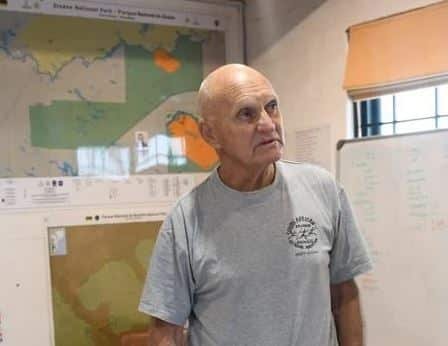
Rhodesian born private military contractor Lionel Dyck (80) died in Cape Town earlier this month (June) after succumbing to cancer.
His military career saw him in the uniform of landward force of the then Rhodesian Security Forces (RSF) taking on Zimbabwean revolutionaries ahead of independence in April 1980. He was, a report has it, “deeply embroiled in the bloody independence war”, the subsequent integration of forces to create the Zimbabwe Defence Forces (ZDF) and later as a contractor in Mozambique.
Dyck founded the Dyck Advisory Group (DAG) which worked in demining, explosive hazard management, specialised security, canine services and counter-poaching across southern Africa.
Born in January 1944, Dyck was educated at Umtali Boys High (now Mutare Boys High) in what is now Zimbabwe’s third largest city Mutare.
His first taste of military life came in 1961 when he enlisted in the then Rhodesian Light Infantry (RLI). Dyck was reportedly moved to an “internal affairs” group that came to be known as the Central Intelligence Organisation (CIO), which spied on black nationalist movements.
In 1976, at the height of the liberation struggle, Dyck moved to the Rhodesian African Rifles (RAR) and fought on the side of the government until black majority rule was established in 1980.
At independence, Dyck was reportedly asked to stay on by then Prime Minister Robert Mugabe, later to become president, to integrate the RAR and the Zimbabwe People’s Revolutionary Army (ZPRA), trained by the Soviets and Cubans, along with the Chinese-trained Zimbabwe African National Liberation Army (Zanla).
In one historical account, Dyck is quoted as saying: “I just wanted to be a soldier and do my job well. I did not care about the colour of government”.
After settling in South Africa, Dyck co-founded MineTech International, and established Dyck Advisory Group in 2012.
His last notable military contracting work saw him heading a DAG detachment in Cabo Delgado, supporting President Felipe Nyusi’s armed forces to suppress ASWJ (Ahl al-Sunna wal-Jama’a) around 2021.










